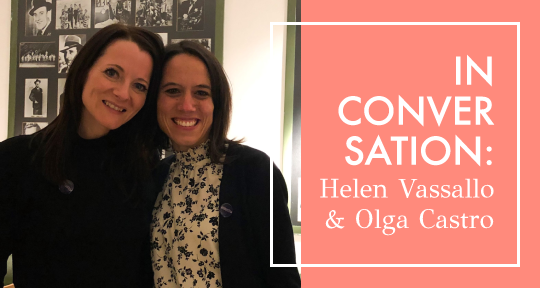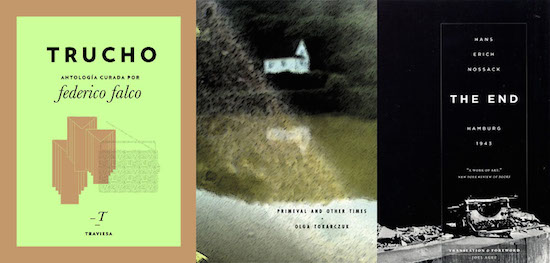When participants registered for the inaugural Translating Women Conference (October 31–November 1, 2019) at the Institute for Modern Languages Research in London, UK, they probably did not yet know that October 31 would become “Brexit Day.” Fortunately, Brexit was postponed, and when some of the delegates arrived in London, they saw a sign in front of a restaurant: “The year is 2192. The British Prime Minister visits Brussels to ask for an extension on Brexit. No one remembers where this tradition came from, but it attracts many tourists every year.” Over two days, a potentially isolationist “historical day” gave way to a fruitful international dialogue focused on translation and women writers from many parts of the world, forging connections and understanding in a time of division and uncertainty.
In the following conversation, Monica Manolachi, Helen Vassallo, and Olga Castro—co-organisers of the Translating Women Conference—speak about the meaning of the hashtag #BeMoreOlga, the many conference highlights, reading books in translation, and explain why feminism and translation are connected movements that have the potential to fully open up the Anglosphere to world literature.
Monica Manolachi (MM): Helen Vassallo and Olga Castro, you co-hosted the first Translating Women Conference at London’s Institute of Modern Languages Research on October 31 and November 1, 2019. On this occasion, participants received pins with the hashtag #BeMoreOlga. What issues does this hashtag address?
Helen Vassallo (HV): This stemmed from an opinion piece I wrote after the Nobel Prize in Literature awarded the delayed 2018 prize to Olga Tokarczuk and the 2019 prize to Peter Handke. Apart from the controversy in awarding the prize to Handke (a decision I found ill-judged, to say the least), I was incensed by the way in which the chair of the prize committee casually and erroneously justified the paucity of women laureates in the prize’s history by saying that “now” there are many great women writers. This only compounds the problem of women’s invisibility: suggesting that women hadn’t featured significantly because they weren’t there or weren’t “great” assumes that awards are based only on merit and not on visibility. I took issue with both the androcentric and the Eurocentric approach to choosing winners: I agree that Tokarczuk was a great choice, but the committee had previously stated that they were looking further afield than Europe, and then both prizes went to Europeans. It’s almost like saying: “well we looked, but there wasn’t anything good enough,” which is exactly what I mean about the myth of meritocracy. There wasn’t any real, demonstrable evidence that the prize committee had scrutinised its own policies, just empty rhetoric. And it was ironic that they commended Tokarczuk’s work for “crossing boundaries as a form of life”; I thought that they could take heed of that for calling into question their own criteria and approach—hence my suggestion that they “Be More Olga.” That was the specific context, but generally, “Be More Olga” stands as a call to action for all of us to be more open, to challenge borders and boundaries—whether literal or figurative—and to claim our place in a connected world. And to cap it all, Olga Tokarczuk herself was wearing one of our #BeMoreOlga badges at the Nobel Prize ceremony in December; I never dreamed that would happen! Tokarczuk’s Nobel lecture offers profound reflections on crossing borders, remaking our broken world, and challenging isolationism; it’s translated into English by Antonia Lloyd-Jones and Jennifer Croft, and expresses far more articulately than I could exactly what “Be More Olga” means. READ MORE…





